Add your feed to SetSticker.com! Promote your sites and attract more customers. It costs only 100 EUROS per YEAR.
Pleasant surprises on every page! Discover new articles, displayed randomly throughout the site. Interesting content, always a click away
How To Determine the Best Elevator Size for Your Home 21 Jan 2025, 12:19 pm
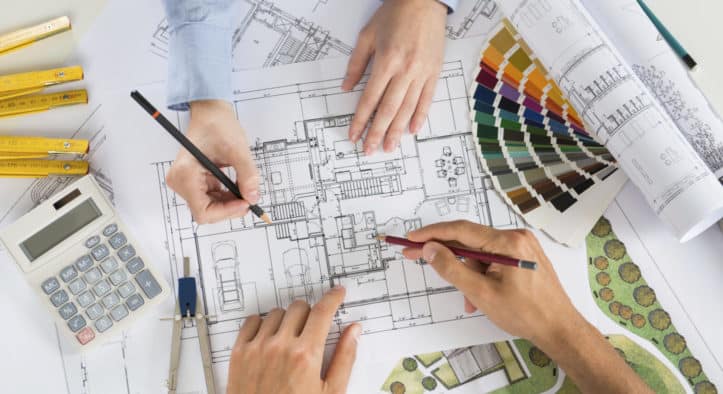
If you or someone in your home has mobility challenges, a home elevator could be a great solution for accessibility. If you decide a home elevator is the best option, you must account for different factors when choosing the right one and size. As you’ll learn in this blog post, it’s good to familiarize yourself with these factors, including a home elevator’s size requirements and weight capacity, before making your decision.
Rest assured that Signature Elevators & Accessible Design can help you choose the best home elevator size for your needs. Continue reading to learn about home elevator size requirements to make an informed decision for you or your loved one.
Home Elevator Size Requirements
For your residential elevator to be ADA-compliant, it should meet the following size requirements:
- Door width: 36 inches
- Cab depth: 51 inches
- Width: 68 inches at a minimum or 80 inches for centered doors
The team at Signature Elevators will ensure your home elevator meets these requirements to remain ADA-compliant.
Standard Home Elevator Dimensions
Home elevator dimensions are determined by home layout, elevator type, architectural features, and residential building codes. That said, most residential elevators have a width of 48-60 inches, a cab depth of 36-60 inches, and a height of at least 80 inches. Builders should never use a cookie-cutter approach when installing home elevators, as every home is unique.
While most homes can accommodate an elevator, it’s critical to discuss space concerns with our team before proceeding. These discussions ensure that your home elevator is constructed in the most available space.
Weight Capacity of Home Elevators
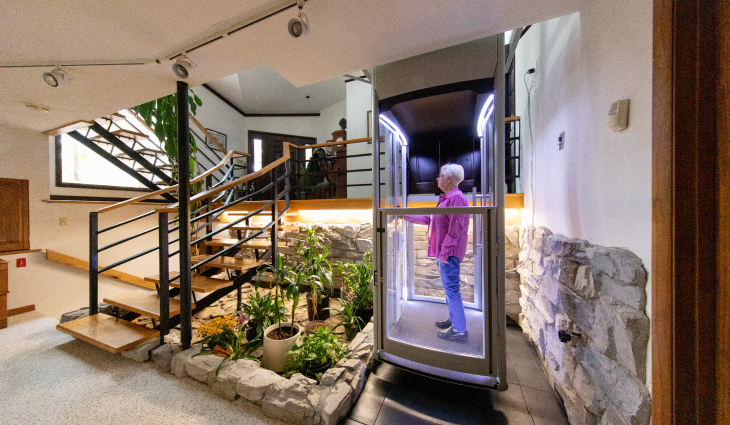
In many cases, selecting a home elevator’s weight capacity is just as important as picking the size. Elevator weight capacity indicates the number of people who can ride in the cab at any given time. It also provides an accurate idea of extra items you can bring, like groceries or home goods.
There are typically four weight capacities of residential elevators, including:
- 500 pounds
- 750 pounds
- 950 pounds
- 1,000 pounds or more
Our home elevator technicians will help you choose an elevator with the perfect weight capacity for your personal needs.
Home Elevator Machine Room
A home elevator machine room is a specific area below or above the elevator to store and maintain the system’s mechanical pulley, motors, power cables, and other essential components. Before determining if a home elevator machine room is best for you, an expert will assess your property and see if you have the necessary space for this addition.
Another key consideration is your elevator’s powering system. Once it’s confirmed that your home has room for a home elevator machine room, your team can choose the right powering system. The powering system affects the machine’s movements and possible elevator installation locations. If you don’t have enough space for an elevator machine room, you may still be able to move forward with other home elevator options.
Schedule a Consultation With Signature Elevators & Accessible Design
At Signature Elevators & Accessible Design, we know that a high-quality home elevator can allow those with mobility challenges to remain safe and comfortable in their own residence. With over a decade of experience, you can count on us for top-quality work and friendly, unmatched service. We can install home elevators, chair lifts, and other accessible home design projects in Virginia, Maryland, and DC Metro.
Contact Signature Elevators to schedule a home elevator consultation in Virginia, Maryland, or Washington, DC.
Types of Home Elevators: Choosing the Best Home Elevator for Your Maryland Home 18 Dec 2024, 12:27 pm

Aging in place can be difficult for older adults who can’t navigate their homes like they used to. Arguably, the biggest challenge is going up and down the stairs, which is where installing a home elevator makes a huge difference.
Once you’ve decided to install an elevator, it can be difficult to choose which type is right for you and your family. Since there are several different types of elevators, each with its own benefits, you might feel overwhelmed when choosing.
Don’t worry. With over 15 years of experience, the Signature Elevators & Accessible Design team is here to help you choose the best residential home elevator.
Pneumatic Vacuum Elevators
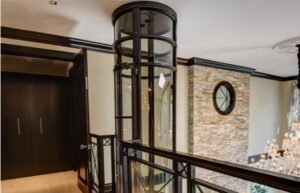
Using air pressure and a vacuum system, pneumatic vacuum elevators are a modern and eco-friendly solution.
Because of their sleek, cylindrical design, these elevators are ideal for homes with limited space. With a weight capacity of up to 525 pounds, pneumatic vacuum elevators are typically found in smaller households.
Other pneumatic vacuum elevator benefits include:
- Low maintenance costs compared to traditional elevators
- No need for a machine room or shaft with a space-saving design
- Quick installation process
- An energy-efficient system that uses minimal electricity
- Open, airy feel to your home with its transparent structure
Stiltz Elevators

Stiltz elevators are compact and versatile, making them a great choice for retrofitting an existing home. Their free-standing design doesn’t require hydraulics or building support walls, so installation is quick and painless and can be done in just one day.
The Stiltz elevator has two options: a Stiltz Duo Alta or a Stiltz Trio Alta. The Duo Alta can transport up to two people and has a footprint of under 7 square feet, whereas the Trio Alta can carry up to three people and has a footprint of under 15 square feet, which makes it ideal for wheelchair users.
Additional benefits of a Stiltz elevator include:
- A free-standing design that can be put virtually anywhere in a home
- A low-power-consumption drive system
- Whisper-quiet operation
- An easy-to-install design
Cambridge Elevators
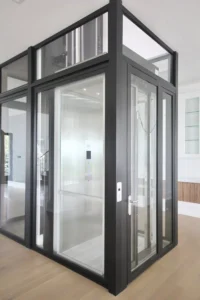
If you’re looking for a commercial-quality elevator, the Cambridge elevator is right for you. This home elevator is highly customizable and built for durability. Depending on the model, it can carry up to 950 pounds or 1,500 pounds, so it’s great for larger households.
Here are some benefits of Cambridge elevators:
- Customizable finishes and cabin sizes to match your home’s style
- Smooth, quiet operation
- Built to withstand heavy usage
- Can be designed for wheelchair accessibility and other mobility needs
- Advanced safety features, like emergency stop buttons and interlocks
Fox Valley Elevators

Known for high-quality craftsmanship, Fox Valley Elevators combines elegance with functionality. With the ability to carry up to 1,000 pounds, these elevators can easily handle multiple passengers and fit wheelchairs, scooters, attendants, furniture, and more.
Some benefits of installing a Fox Valley Elevator include:
- Custom-built to suit your home’s specific dimensions and design
- Equipped with cutting-edge safety
- Durable and reliable, ensuring long-term performance
- Smooth ride for a comfortable experience
Factors To Consider When Choosing a Home Elevator
When selecting the best elevator for your Maryland home, you’ll want to consider space, size requirements, budget, and more. These are some specific things to keep in mind:
- Available space: Evaluate how much room you can dedicate to your elevator.
- Elevator weight limit and size requirements: Consider the number of passengers or weight you’ll need to transport.
- Budget: Evaluate how much you can spend, and remember that price will vary by elevator type, installation requirements, and customizations.
- Aesthetic preferences: Choose an elevator that complements your home’s style.
- Mobility needs: Ensure your elevator meets accessibility standards if you need a wheelchair or other accommodation.
Contact Us Today for a Personal Home Elevator Consultation
Every home is unique, so let the experts at Signature Elevators personally consult with you to help you decide which elevator is right for you. From there, our experienced team can install the best residential elevator exactly to your liking.
Learn more about our process or request a quote today by contacting us.
3 Big Myths About Residential Elevators 2 Oct 2024, 5:19 am
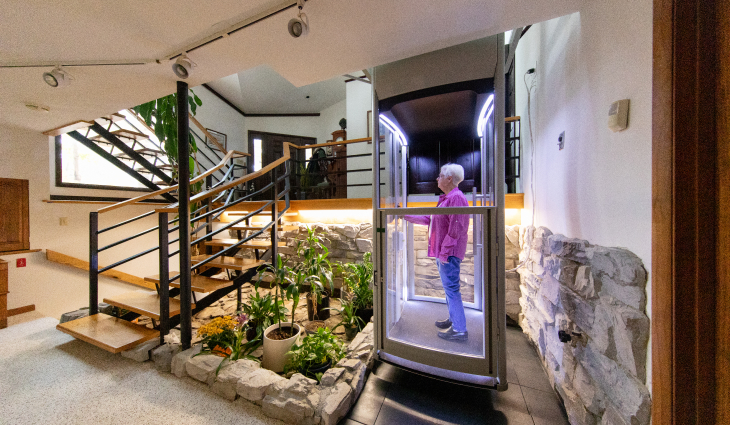
Getting a residential elevator installed is a significantly life-changing decision. Whether you live in Potomac, Bethesda, Rockville, Kensington, or Silver Spring, adding an elevator can greatly improve your life and the value of your home. But even with the benefits of accessibility and convenience, many people hesitate to invest in a residential elevator because of these big myths.
Myth #1: Residential Elevators are Unaffordable
Although they might be a considerable investment, residential elevators are quite reasonably priced. Depending on how much customization is involved, the cost of a residential elevator can range from $25,000 to $75,000. These figures assume another contractor is doing or has done the elevator hoistway and electrical work.
Myth #2: Residential Elevators are Dangerous
Safety concerns often prevent people from enjoying the benefits of a residential elevator. Some people are afraid that the elevator might drop suddenly or that they could become stuck inside and run out of oxygen. But rest assured, our residential elevators are designed with safety as the top priority.
A single elevator cable, even if partially severed, will still be strong enough to hold the full weight of the elevator cab, and at least four cables are used for support. According to basic safety regulations, a residential elevator cannot be designed with an airtight seal, so you’ll never have to worry about suffocating.
You won’t get stuck in your residential elevator in the first place because, even during a power outage, the elevator has an automatic battery backup system that will take you to the lowest floor and open the doors.
Myth #3: Residential Elevators Malfunction Easily
The anxiety associated with buying a residential elevator is understandable. Even with safety standards in place, you might wonder if your elevator could malfunction under unusual circumstances, such as exceeding the weight limit.
An elevator’s weight limit is a common concern, which is why all residential elevators are designed to ring a warning bell or buzzer to let you know if they have exceeded capacity. This is rare since most residential elevators can hold upward of one thousand pounds. The elevator will remain stationary until the weight limit is back under control.
If anything else could possibly make your residential elevator drop suddenly, it has a built-in mechanism that prevents it from lowering more than a certain speed. This is usually in the form of a braking system of rails that run down the elevator shaft. Even in a worst-case scenario, your elevator will safely lower you to a stop.
Install a Home Elevator With Signature Elevators
Signature Elevators & Accessible Design works with leading manufacturers to provide you with the beautiful residential elevator that you need. Located in Rockville, MD, we have years of experience with incorporating elevators into multi-story homes and working with customers to ensure the elevator meets their specific needs.
With styles from modern tubes to wood-paneled cabs, Signature Elevators has all the tools to build the perfect elevator for your home.
Contact us today to discuss a home elevator installation in Maryland, Virginia, Baltimore, or the DC metro area.
The manufacturers we represent are:
The Most Common Places To Install a Home Elevator 2 Oct 2023, 12:27 pm
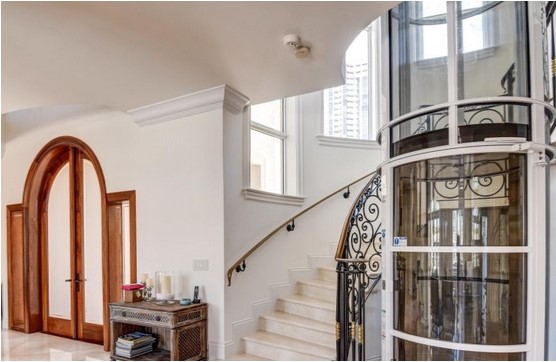
One of the best ways to improve your home’s accessibility and property value is to install a convenient and reliable home elevator. Before installing an elevator, you’ll need to determine the best placement within your home.
Below, we’ll review several factors you’ll want to consider before making a final decision. The experts at Signature Elevators & Accessible Design can also help you determine the right products and placement for your needs and budget.
Schedule a consultation with the experienced team at Signature Elevators & Accessible Design. Call 301-251-1658 to get started.
Considerations Before Installing a Home Elevator
Before deciding to have an elevator installed in your home, you should think about:
- Family needs: Does anyone in your household have mobility issues who could benefit from an elevator? Do you intend to stay in your current home long-term? As you age, navigating stairs can become difficult. A residential elevator would allow you to stay in your multi-story home with ease.
- Installation & construction: The timeline of the installation process can vary from days to weeks, depending on your home’s layout and structure.
- Electrical requirements: A residential elevator will require specific electrical wiring that should be handled by experts who are up-to-date on local code requirements.
- Resale value: An in-home elevator is an attractive amenity that can significantly increase your home’s value and help it stand out from others on the market.
- Budget: It’s best to create a realistic budget before the project begins to ensure you select the elevator that will meet your needs without jeopardizing your finances.
Where To Install Your Home Elevator
One of the most important decisions you’ll need to make is where to put the elevator in your home. You’ll want to pick a place that’s easily accessible on all floors, and that also makes sense with your home’s construction and floor plan.
Many homeowners choose one of these placements:
- Basement or garage to ground floor: This configuration simplifies the loading and unloading of groceries, packages, laundry, luggage, and more.
- Living room to bedroom: This is the most common use for a residential elevator, connecting your living space to a bedroom on a different floor.
- Closet to closet: If your home layout has closets stacked on one another, that’s an excellent option for an elevator that won’t alter your current layout.
- Stairwell void: If you have a stairwell that turns, there’s usually an unused space perfect for a residential elevator.
- Thru-car design: If you use a wheelchair, you may benefit from a design that allows you to enter the elevator on one side and exit on the other.
Every home elevator is different and may require more or less space or structural support. Additional requirements to consider before deciding on the installation location include:
- Room for a depression of about 8 inches.
- Roughly 25 square feet of space for the elevator itself.
- Sufficient support for the structure, which can be constructed during a retrofit.
Professional installers like those at Signature Elevators can help you determine the right place in your home to install the elevator to meet your needs.
Planning New Home Construction
If you’re constructing a new home, it’s an excellent time to consider including a residential elevator in your design.
By installing the elevator in your new construction project, you can better weave the elevator into the home’s floor plan for improved functionality, aesthetics, and cost savings since you won’t be retrofitting anything.
Schedule a Home Elevator Installation
Signature Elevators is here for all your home elevator needs. We can help you determine which elevator is right for your requirements and budget. We offer competitive and affordable pricing, high-quality products, and exceptional service.
With over a decade of experience, we’re the premier provider of residential elevator services in Virginia, Maryland, and Washington, DC.
Call Signature Elevators at 301-251-1658 today to schedule in-home elevator installation.
Home Elevator vs. Stair Lift: Which Is Better for Your Home? 15 Sep 2023, 12:21 pm

Many of today’s homes have multiple levels connected by stairs. Sometimes, homeowners need another way to move between those levels, whether due to age, disability, or other circumstances.
In this blog post, we’ll discuss two great options to consider – home elevators and stair lifts – and how they compare when determining which is better for your needs.
Home Elevators
A home elevator is an elevator inside a home that can carry one or two people at a time from one floor to another. Most involve an elevator shaft, an enclosed elevator car, and a lifting and lowering mechanism.
Home elevator benefits include:
- Increases home value
- Can move heavier loads from floor to floor
- Accesses multiple levels of your home
- Great for wheelchair users
- Customizable
- Concealable
- Luxury features
- Multiple drive types to choose from
- Location options
- Known for safety
Stair Lifts
Stair lifts are motorized seats mounted on a staircase. The user sits in the chair, flips a switch, and is safely and conveniently transported up or down to the next floor of the home. Stair lift advantages include:
- Shorter installation time compared to elevators
- Affordability
- Ease of installation
- No remodeling required
- Perfect for nearly every staircase
- Indoor-outdoor options
- Collapsible when not in use
- Easily removed
Factors To Consider When Deciding Which Is Right for Your Home
If you’re deciding between a home elevator and a stair lift for your home, consider:
- Cost: Stair lifts can be significantly less expensive than home elevators.
- Mobility: One of the most important factors to consider is mobility. If you’re unable to get out of a wheelchair, an elevator may be a better choice.
- Space: Installation of an elevator requires space and physical reconstruction in your home. Stair lifts only require the space available in your existing staircase.
- Maintenance: Both home elevators and stair lifts require periodic maintenance. Home elevators are more complex systems and have more moving parts, thus requiring more maintenance.
Schedule Installation With Signature Elevators & Accessible Design
At Signature Elevators & Accessible Design, we have comprehensive training and extensive experience with home elevators, stair lifts, and other accessibility solutions. Our highly knowledgeable staff will help you determine your accessibility requirements and find the right solution to meet them within your budget.
We offer our customers the highest quality work, top-of-the-line customer service, and industry-leading accessibility products and solutions. With over a decade of experience, Signature Elevators & Accessible Design is your best choice for extending your time in the home you love.
Call 301-251-1658 today to schedule a home elevator consultation with the experts at Signature Elevators & Accessible Design.
A Safe & Secure Home Elevator: The Elevator Installation Process 16 Jun 2023, 12:21 pm
Residential Elevator Hoist Way Construction Explained
In the construction industry, one occasionally hears carpenters, builders and remodelers refer to residential elevator hoist ways as simple projects, no more complicated to build than walk-in closets. But they’re wrong. Hoist ways are anything but simple; not only do they call for adherence to strict structural and safety codes, but they also require reconfiguring the structure of each floor through which it’s built. Since they are often misunderstood, we decided to explain what goes into building residential elevator hoist ways.
Securing Home Elevator Hoist Way Walls
An experienced residential elevator contractor can build the walls of a residential elevator shaft with concrete, masonry, wood or metal framing, or any combination thereof. Besides the material used, the most important thing to consider when building a hoist way is its safety and soundness.
The shaft walls have to be very strong – strong enough to withstand the forces exerted by a moving elevator whose total weight, including occupants, comes to about 1,000 pounds. In addition, residential elevator shafts cannot share space with any other wires, ducts or pipes.
Most importantly, each floor the elevator passes through has to be structurally modified. In most modern platform construction homes, joists span each floor from wall to wall and are supported by footers. When your elevator contractors cut out a space for the hoist they have to cut through joists as well; therefore, they need to transfer the bearing of that load.
Making Residential Elevators Safe
According to building codes (and common sense), residential elevator hoist ways have to be finished in fire resistant materials. Many architects, contractors and remodelers will say that there is no code provision for single-family home elevator hoist way fire ratings and so don’t address it. But the code is especially clear when it comes to fire transfer, which occurs when fire spreads from one home to another one nearby. But it’s true: fire safety codes are not as strict when it comes to safety within your own home. That’s why it is up to you and your residential elevator contractor to use common sense to protect your family. We will work closely with you to make your home elevator a safe and secure place, complete with the latest fire-safe materials.
Home Elevator Pit
Residential elevators are supported on the bottom by L-shaped frames. Therefore, in order for the cab to stop at a point even with the floor, a small pit has to be dug to make room for the framework. Some residential elevator manufacturers have new, pitless products that suspend the cabin from an inverted L-frame. Since the bottom of the elevator has a minimum thickness of 1″, however, a shallow pit still has to be dug.
Residential Elevator Hallway Doors & Call Station
Elevators usually have folding accordion doors, made of vinyl, metal or wood, and each landing has a door as well. The location of the door and distance to the edge of the shaft is dictated by the 3 and 5 rule. This states that the back of the door cannot be more than 3″ from the edge of the hoist way, or more than 5″ from the hoist way gate. Residential elevator doors also feature an interlock, the mechanism that ensures that the neither door can open until the elevator is at the right level.
If you are a builder, architect, or remodeler seeking more information on hoist way construction for the benefit of a customer or client click here to request more information.Shaft-less Home Elevators: No Hoist Way!
At Signature Elevators & Accessible Design, we represent some great elevator manufacturers whose traditional approach to home elevators require a hoist way and pit. But we also represent a very unique residential elevator manufacturer that makes a pneumatic vacuum elevator. This elevator is essentially made of an inner and outer tube – the inner tube being the cabin. Pneumatic vacuum elevators are especially unique because they don’t require a hoist way or pit! Of course, holes still must be cut in the floor, but the installation process for a pneumatic vacuum elevator is still much quicker and simpler than that of a traditional elevator. Click here to learn more about this amazing residential elevator.
How a Home Elevator Adds Value to Your Baltimore Home 23 Apr 2021, 12:21 pm
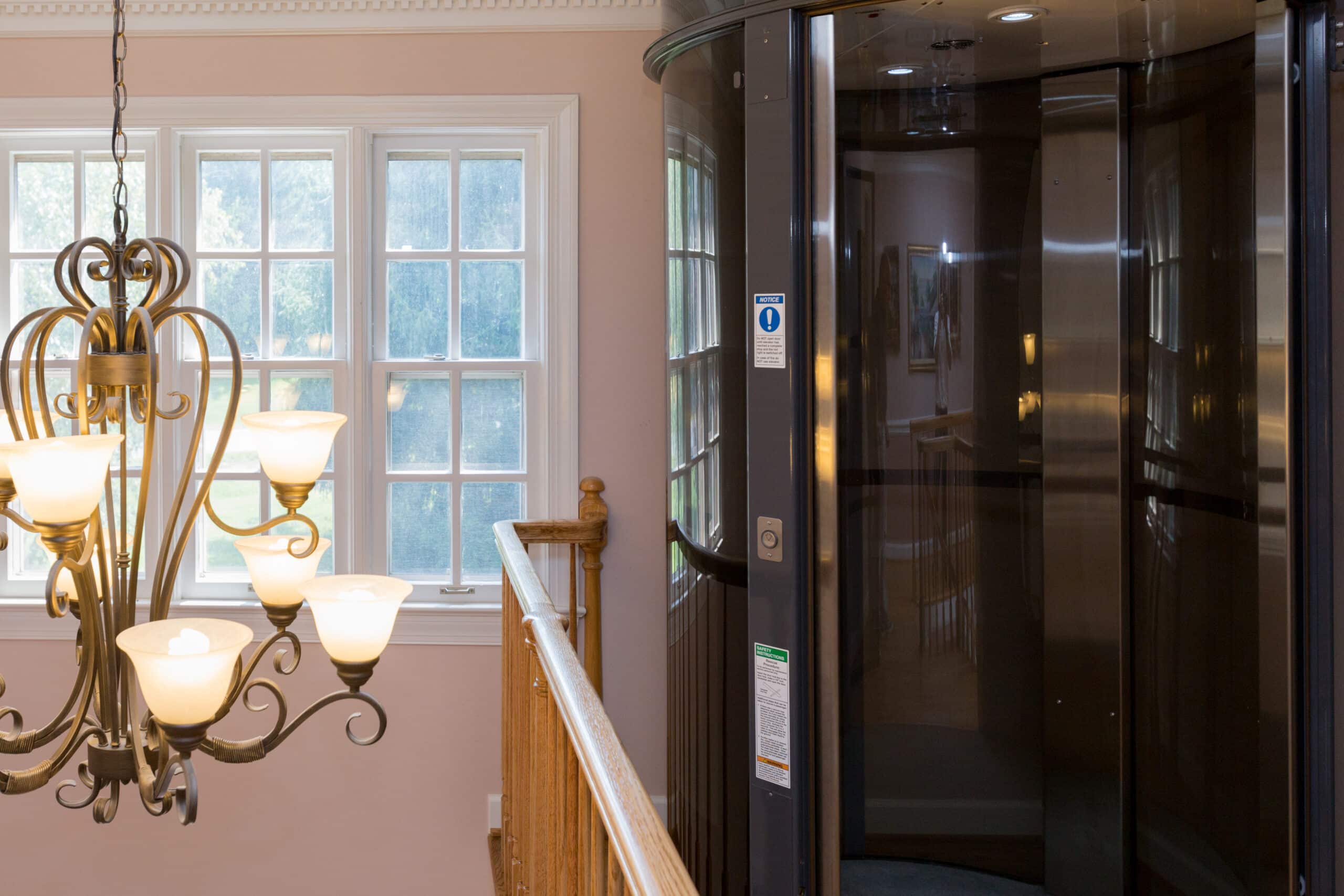
If you’re like most Baltimore homeowners, the value of your home is never too far from your mind. Even if you aren’t planning on selling anytime soon, you want each modification you make to boost its value in some way. With residential elevators becoming more affordable in recent years, many are considering making the investment. But will a home elevator add value to your home? Of course, it will! Here’s why.
Property Value
Every homeowner wants to do what they can to increase the selling value of their home. At first, a home elevator might not seem quite as much as a selling point as a remodeled kitchen or a finished basement, but it can still go a long way toward boosting your property value.
Still, you should keep in mind that not all residential elevators are just as valuable. A sleek, modern pneumatic vacuum elevator will likely increase your property value more than a porch lift. State-of-the-art accessibility solutions will be more attractive to potential buyers than antiquated ones.
It’s difficult to say exactly how much a home elevator will add value to your Baltimore home. But it’s not unreasonable to expect as much as a 10% increase in your home’s total value after an installation.
Personal Value
But it’s not always financial value that matters. The personal value may be harder to calculate with dollar signs and decimals, but it can be even more important.
Investing in the accessibility of your Baltimore home is bound to be a smart investment in the happiness and wellbeing of your domestic life. Many people make the assumption that they will eventually have to move out of their homes due to accessibility concerns. But, after installing something so simple as a residential elevator, you won’t have to.
There are countless reasons why you might want to age in place in your Baltimore home. Here at Signature Elevators & Accessible Design, it’s our goal to make that happen. We believe that accessibility can add immeasurable value to your property and your life. It all starts with a phone call.
Contact Signature Elevators & Accessible Design Today for Home Elevators in Baltimore!
Signature Elevators & Accessible Design, LLC works with leading manufacturers to provide you with the beautiful residential elevator that you need. Located in Rockville, MD, and serving Maryland, Washington DC, and Northern Virginia areas, we have years of experience incorporating elevators into multi-story homes and working with customers to ensure the elevator meets their specific needs. With styles from modern tubes to wood-paneled cabs, Signature Elevators has all the tools you need to build the perfect elevator for your home! Visit our website or contact us at 301-251-1658 for more information. The manufacturers we represent are:
Pneumatic Vacuum Elevators https://www.vacuumelevators.com/
Stiltz Lifts https://www.stiltzlifts.com/
Fox Valley Elevators https://www.foxvalleyelevator.com/
Cambridge Elevating https://www.cambridgeelevating.com/
How to Make Your Annapolis Home Wheelchair-Friendly 9 Apr 2021, 12:25 pm
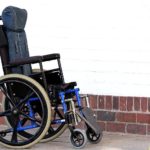
Here at Signature Elevators & Accessible Design, we believe that every homeowner should take accessibility seriously. It always pays to be thinking ahead. You never know just when your mobility might become compromised, or when you might have to host someone in a wheelchair. If you’re looking to make your Annapolis, Maryland home more wheelchair-friendly, you should consider these modifications!
A Porch Lift
Before you can think about accessibility on the interior of your home, you might want to give some thought to the exterior. What can you do to make it so that an individual in a wheelchair can enter your home?
Obviously, ramps are the most popular solution to this conundrum. But there are plenty of others. One of these is a porch lift—an option we are particularly fond of for Annapolis homeowners. You can think of this as an outdoor elevator that can lift a wheelchair up from the ground to your porch and into your home.
Porch lifts are designed specifically with wheelchair users in mind. But they aren’t just wheelchair-friendly; anyone with compromised mobility can make use of this modification to your home.
Chair Lifts
Most homeowners are familiar with stair lifts. While these are a great option for those who struggle to get up and down stairs, they aren’t always the best option for individuals in wheelchairs. They require the individual to get out of their wheelchair to sit on the lift.
This is where chair lifts come in. You can think of these as the indoor equivalents of your porch lifts. You can wheel the entire chair onto the lift, and easily travel between floors.
Home Elevators
Still, many homes in the Annapolis area don’t have enough room around their staircases to accommodate a chair lift. Thankfully, there are other options that are more forgiving in terms of space.
There are countless home elevators on the market that can help make your Annapolis home more wheelchair-friendly. Here at Signature Elevators & Accessible Design, we can install them all.
You might think that your home is too small to accommodate a home elevator, but you’d be amazed at just how small their footprints can be. The state-of-the-art pneumatic vacuum elevator, for instance, can be installed in nearly any home!
Are you looking to make your Annapolis home more wheelchair-friendly? We can make it happen. Just give us a call!
Contact Signature Elevator & Accessible Design Today for Wheelchair-Friendly Solutions in Annapolis, MD!
Signature Elevators & Accessible Design, LLC works with leading manufacturers to provide you with the beautiful residential elevator that you need. Located in Rockville, MD and serving Maryland, Washington, DC and Northern Virginia areas, we have years of experience with incorporating elevators into multi-story homes and working with customers to ensure the elevator meets their specific needs. With styles from modern tubes to wood paneled cabs, Signature Elevators has all the tools you need to build the perfect elevator for your home! Visit our website or contact us at 301-251-1658 for more information. The manufacturers we represent are:
Pneumatic Vacuum Elevators https://www.vacuumelevators.com/
Stiltz Lifts https://www.stiltzlifts.com/
Fox Valley Elevators https://www.foxvalleyelevator.com/
Cambridge Elevating https://www.cambridgeelevating.com/
Determining the Cost of a Stair Lift for Your Maryland Home 12 Mar 2021, 12:24 pm
There are so many reasons to age in place in the state of Maryland. But most homeowners will have to make some alterations to their home to make it more accommodating to the aging. One of the easiest modifications you can make is the installation of a stair lift. These are a popular option for various reasons, not the least of which is their affordability. But their cost will vary based on a few factors. Here’s what you can expect to pay for a stair lift in your Maryland home!
A Straight Stair Lift
If the staircase on which you’d like to install your lift is straight, then you’re in luck. A stair lift will be immensely affordable. Keep in mind that when we say ‘straight,’ we refer to a staircase with no turns or curvature whatsoever.
Straight stair lifts are so much cheaper than the alternative because they are not made-to-order. We don’t even have to visit your house before ordering one. During the installation process in your Maryland home, we simply cut the lift to fit your staircase.
As you might have guessed, installing a straight stair lift in your Maryland home isn’t just cheap; it’s quick, too. Because there is no customization necessary, the whole process can be accomplished in as little time as one week.
When all is said and done, you can expect to have a straight stair lift installed in your home for about $5,000.
A Curved Stair Lift
The other option is what’s known as a ‘curved stair lift.’ Keep in mind that when we say ‘curved,’ we are really referring to anything other than completely straight. Even if your staircase has one turn, a straight lift will not do the trick.
The cost of your curved lift will vary based on the following factors:
- Number of landings
- Length of the staircase
- General complexity of the space
You can generally expect to pay about 4 times as much for a curved lift as you would for a straight one. A typical figure would be in the range of $20,000. Because they have to be custom-ordered to fit your staircase, you may have to wait longer than 1 month from start to finish.
Maryland homeowners should keep in mind that, as expensive as a curved stair lift might be, they are still far cheaper than an extended stay in an assisted living facility. Investing in a stair lift isn’t just a wise financial decision; it’s a wise move for your sense of independence and psychological wellbeing, too.
Contact Signature Elevator & Accessible Design Today for Stair Lifts in Maryland!
Signature Elevators & Accessible Design, LLC works with leading manufacturers to provide you with the beautiful residential elevator that you need. Located in Rockville, MD and serving Maryland, Washington, DC and Northern Virginia areas, we have years of experience with incorporating elevators into multi-story homes and working with customers to ensure the elevator meets their specific needs. With styles from modern tubes to wood paneled cabs, Signature Elevators has all the tools you need to build the perfect elevator for your home! Visit our website or contact us at 301-251-1658 for more information. The manufacturers we represent are:
Pneumatic Vacuum Elevators https://www.vacuumelevators.com/
Stiltz Lifts https://www.stiltzlifts.com/
Fox Valley Elevators https://www.foxvalleyelevator.com/
Cambridge Elevating https://www.cambridgeelevating.com/
What is the Best Home Lift for Maryland Homeowners? 26 Feb 2021, 12:18 pm
As time goes on, you may begin to find the prospect of aging in place increasingly attractive. There really is no place like home, and it’s hard to deny the financial savings and peace of mind that comes from simply boosting accessibility in the place where you live. Many Maryland homeowners who want to age in place ask the following question: what’s the best home lift? Today, we’ll share our answer.
No One Answer
Let’s cut right to the chase: there is no simple answer as to the best home lift for Maryland homeowners. The best elevator option for one person might not be the best for another. The right answer will vary based on a wide variety of factors, including budget, personal preferences, and even the layout of the home itself.
For some people, the best home lift might actually not be an elevator at all: a stair lift. These don’t take up nearly as much space as traditional home elevators, which means they’re easy to incorporate into a majority of homes. Especially for staircases without curves or turns, they are remarkably affordable.
Still, for those with the budget and space to accommodate it, we believe there is a definite answer to the question of the best home lift.
The Pneumatic Vacuum Elevator
From an objective point of view, a pneumatic vacuum elevator (PVE) is the best home lift money can buy. Simply put, it is the state of the art in home lifts. PVEs stand in contradiction to a lot of misconceptions people have about home elevators. For one thing, many people understandably feel as though home lifts take up too much space. PVEs have a remarkably small footprint, meaning they are easy to incorporate into all but the smallest of Maryland homes.
Don’t worry about what you may have heard about home lifts being too loud. When in use, your pneumatic vacuum elevator is roughly as loud as your typical vacuum cleaner. Add to this the fact that they are extremely energy efficient and impeccably safe, and it’s easy to see why PVEs are the best home elevator option for Maryland homeowners.
Pneumatic vacuum elevators aren’t just futuristic from a technical perspective; they look futuristic, too. Their appearance is decidedly modern, but still understated enough to be seamlessly incorporated into your typical living space.
There are so many reasons to age in place in the state of Maryland. Your investment in a home lift is exactly that—an investment. The more you spend now, the easier your life will be further down the line. Consider hiring us to install a pneumatic vacuum elevator in your Maryland home today!
Contact Signature Elevator & Accessible Design Today for Your Pneumatic Vacuum Elevator in Maryland!
Signature Elevators & Accessible Design, LLC works with leading manufacturers to provide you with the beautiful residential elevator that you need. Located in Rockville, MD and serving Maryland, Washington, DC and Northern Virginia areas, we have years of experience with incorporating elevators into multi-story homes and working with customers to ensure the elevator meets their specific needs. With styles from modern tubes to wood paneled cabs, Signature Elevators has all the tools you need to build the perfect elevator for your home! Visit our website or contact us at 301-251-1658 for more information. The manufacturers we represent are:
Pneumatic Vacuum Elevators https://www.vacuumelevators.com/
Stiltz Lifts https://www.stiltzlifts.com/
Fox Valley Elevators https://www.foxvalleyelevator.com/
Cambridge Elevating https://www.cambridgeelevating.com/